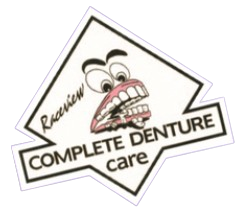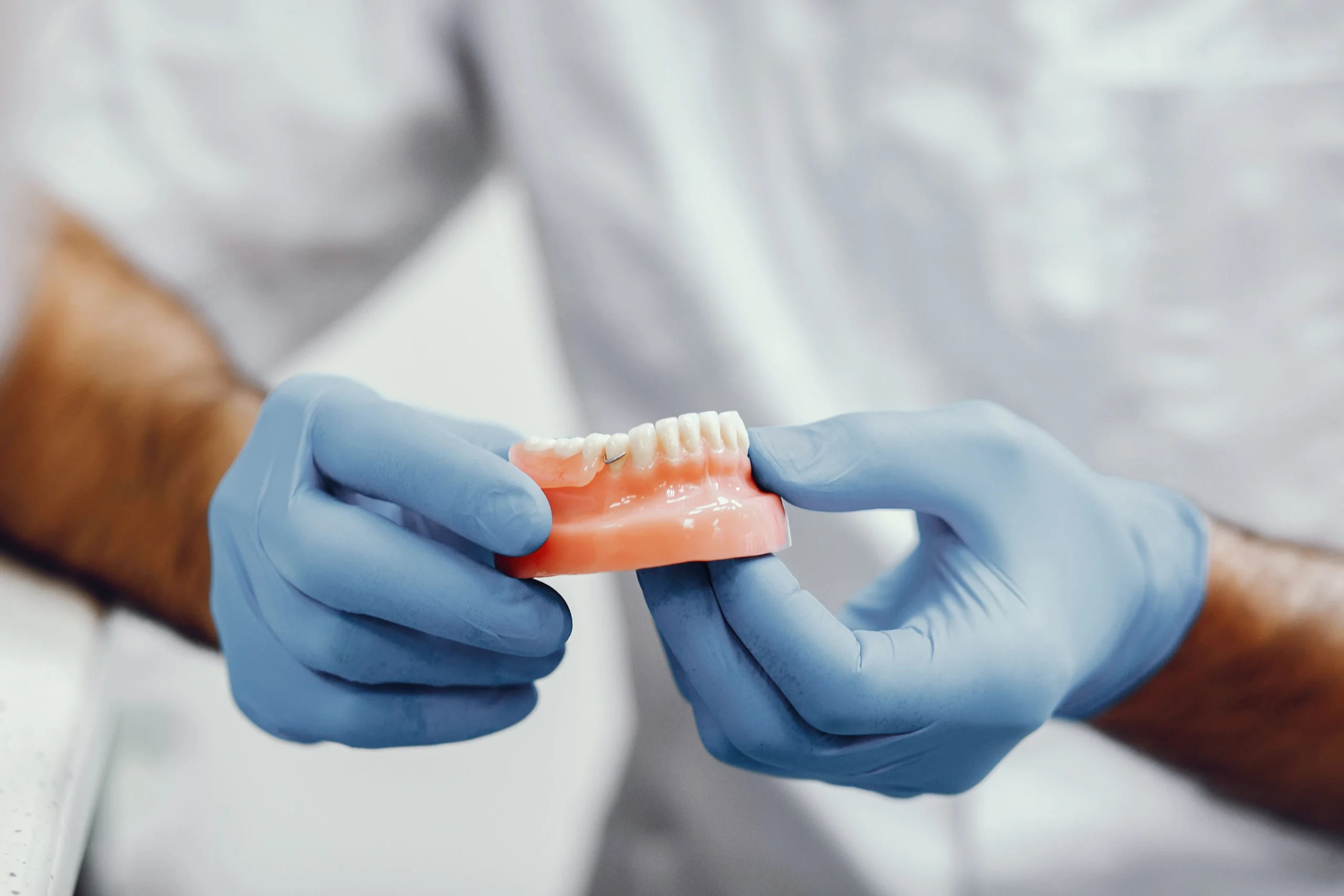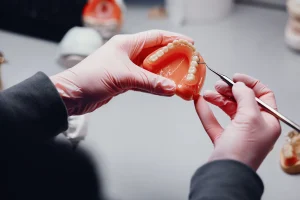Wearing dentures means enjoying life without missing teeth, but it also brings the risk of breaks, chips, or loose fittings. In Ipswich, especially, a broken denture can disrupt meals or confidence. Fortunately, with some care and common-sense habits, you can avoid denture repair far less often. Dentists advise that a few simple daily routines and precautions can keep your dentures in great shape, saving you time and worry.
Dentures are custom-made to fit your mouth, usually acrylic or acrylic with a metal framework, and are designed to replace your natural teeth. Over time, however, your mouth changes, and wear and tear can take its toll. Professional maintenance helps keep dentures strong and comfortable.
In this blog, we’ll walk through expert dentist-approved tips that help keep your dentures strong, secure, and in excellent working order, so you can stay smiling without interruption. By following dentist-approved care advice, such as proper cleaning and handling, you can avoid visits for denture repair in Ipswich more often.
7 Dentist Tips to Avoid Denture Repair
Daily denture cleaning:
Remove and brush dentures morning and night with a soft denture brush or toothbrush, using mild liquid soap or a denture cleanser. Cleaning after meals is also wise if possible. This routine prevents plaque and food build-up that can irritate gums or cause stains. Never scrub them with ordinary toothpaste or harsh abrasives; toothpaste can scratch the acrylic. Rinse dentures well after cleaning, and also gently brush any remaining teeth and your gums to maintain oral health.
Remove and soak overnight:
Take your dentures out before going to bed every night. Allowing your mouth to rest reduces irritation or fungal infections. Store cleaned dentures in water or a cleaning solution overnight, or in a dry container as your dental professional advises. Keep them in a safe place, so they don’t accidentally fall to the floor while unguarded.
Handle and store them with care:
Dentures are fragile when not in your mouth. Always clean or inspect them over a folded towel or sink partially filled with water. This way, if you drop them, they land on something soft instead of a hard tile. When handling lower dentures, hold them by the broad base rather than by the delicate ends or clasps to avoid bending. Proper handling greatly reduces the risk of cracks or breaks.
Mind your diet:
Be careful with hard, crunchy, or sticky foods that could chip or dislodge your dentures. For example, biting directly into whole apples, crusty bread, or hard nuts can stress the denture base. Start with soft foods after getting new dentures, and cut tough items into small pieces. Sugary or sticky foods can also get caught under dentures, so rinse thoroughly after eating them. Eating carefully prevents undue pressure on any one part of the denture.
Schedule regular check-ups and relines:
Visit your dentist or dental prosthetist at least once a year for a denture check. Over time, changes in your jaw and gums can make dentures loosen. A professional can reline or adjust the fit so they stay snug. Don’t wait until you have pain; early adjustments can stop problems from developing. See your prosthetist if the denture breaks, chips, cracks, or becomes loose. Never attempt to bend or adjust dentures yourself, as that usually causes more damage.
Be prepared for quick fixes:
Sometimes, a small chip or crack happens despite all care. In Ipswich, many denture clinics offer same-day repair services for emergencies. If a minor break occurs, take action quickly. A prompt professional repair can stop a chip from turning into a full break. Consider keeping the details of a reliable denture repair service handy, as it means you’ll spend less time without your teeth if something goes wrong.
Avoid DIY mistakes:
Don’t soak dentures in very hot water it can warp the acrylic. Skip bleach and homemade cleansers because they can weaken the denture material. If you use denture adhesives, follow the instructions; too much or the wrong adhesive can irritate. When cleaning, gentle soap or a manufacturer’s denture cleaner is best. By steering clear of these common errors, you keep your dentures intact and comfortable.
To illustrate the importance of care versus neglect, see the table below:
| Good Care Step | Risk if You Don’t |
| Clean dentures morning & night | Plaque build-up, gum irritation, bad breath, infections |
| Remove and soak overnight | Sore gums, fungal infections |
| Handle carefully | Chips, cracks, or breaks requiring repair |
| Regular check-ups | Loose fit, sore spots, emergency relines, or replacement |
| Avoid hard/sticky foods | Cracked dentures or bent clasps |
When Should You Replace Your Dentures Instead of Repairing?
Repairs can only go so far. At some point, your dentures may no longer offer the comfort, function, or appearance you need. So, how do you know when it’s time to stop repairing and start fresh?
Here are a few signs:
- Frequent relining or repeated breakage:
If your dentures need constant adjustment or cracking becomes common, they may have worn thin or outlived their lifespan.
- Poor fit despite relining:
When relines no longer restore a secure, comfortable fit, your oral structure may have changed too much.
- Persistent soreness or irritation:
Dentures should not cause pain or gum trauma. If they do, even after adjustments, they may no longer suit your mouth.
- Noticeable changes in your face:
Ill-fitting dentures can make the face appear sunken or change how you speak. If you notice this, a new set may be needed.
- Discolouration, odour, or staining that doesn’t go away:
Over time, acrylic materials degrade and become more porous. This can trap bacteria or odours, making even clean dentures feel unclean.
Most dentures last around 5–7 years, depending on care and materials. Your prosthetist or dentist can help assess whether a replacement is more beneficial than ongoing repair.
Conclusion
Dentures are durable when cared for properly. By sticking to these tips, cleaning them regularly, handling them gently, and getting timely check-ups, you reduce the chance of cracks or loose fittings. Even with the best care, dentures will eventually show wear, but routine maintenance means you’ll likely avoid sudden failures. Remember to consult a professional if something feels off: early adjustments or relining can save you from a complete breakdown later.
Everyday actions like soaking your dentures overnight or scheduling a reline at the right time may seem small, but they have a big impact on how well your dentures fit and function. With consistent attention and awareness, you can avoid the stress and inconvenience of emergency denture issues. Following these dentist-recommended steps keeps you smiling confidently without frequent denture repair in Ipswich.
Reach out to us for personalised support, relines, adjustments, or same-day denture repairs in Ipswich. Our experienced team is ready to keep your smile secure and stress-free. Book your appointment today and experience professional care tailored to you.
FAQs
How do I know if I need denture relining or a full replacement?
If your dentures feel loose, cause irritation, or no longer fit as they used to, you may need a reline or possibly a replacement. Our team will assess your current dentures and oral health to recommend the most suitable solution based on fit, function, and longevity.
Do you make new custom dentures or only repair existing ones?
Raceview Complete Denture Care specialises in both new custom denture creation and repair. Whether you’re getting dentures for the first time or replacing an old set, you’ll receive personalised service to ensure comfort, aesthetics, and proper function.
Do you offer same-day denture repair services in Ipswich?
Yes, we provide same-day denture repair services for most minor issues. If your denture has cracked, chipped, or needs urgent attention, you can often have it assessed and repaired within the day, depending on the complexity of the damage. It’s best to call ahead and book your appointment.



